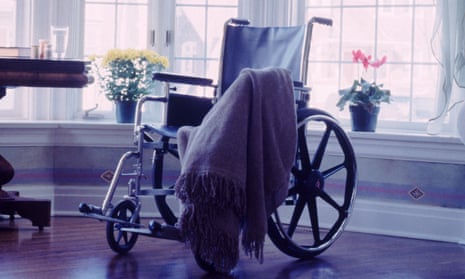Frances Ryan suggests that disabled people in Britain are viewed more as a burden than human (A decade after the Tories demonised disabled people on benefits, it’s happening again, 30 May).
Some days it feels as if “burden” is not a strong enough word to describe things. On 30 May, a coroner found that Sally Lewis, a woman with learning disabilities living in a care home, died of constipation and neglect in 2017. Of course, we witness the familiar “scandal-review-inquest-lessons learned” story on its loop. All the services that were supposed to support Sally line up their barristers at the inquest. Sally’s family have no access to legal aid and try to raise the money online, in part to have a moment in public to say that Sally was a wonderful sister, aunt and woman, and that they miss her.
The worst part? Nobody with any power really cares – at all.
Prof Sara Ryan and Prof Chris Hatton Manchester Metropolitan University; Prof Katherine Runswick Cole University of Sheffield; Prof David Abbott University of Bristol; Deborah Coles Director, Inquest
